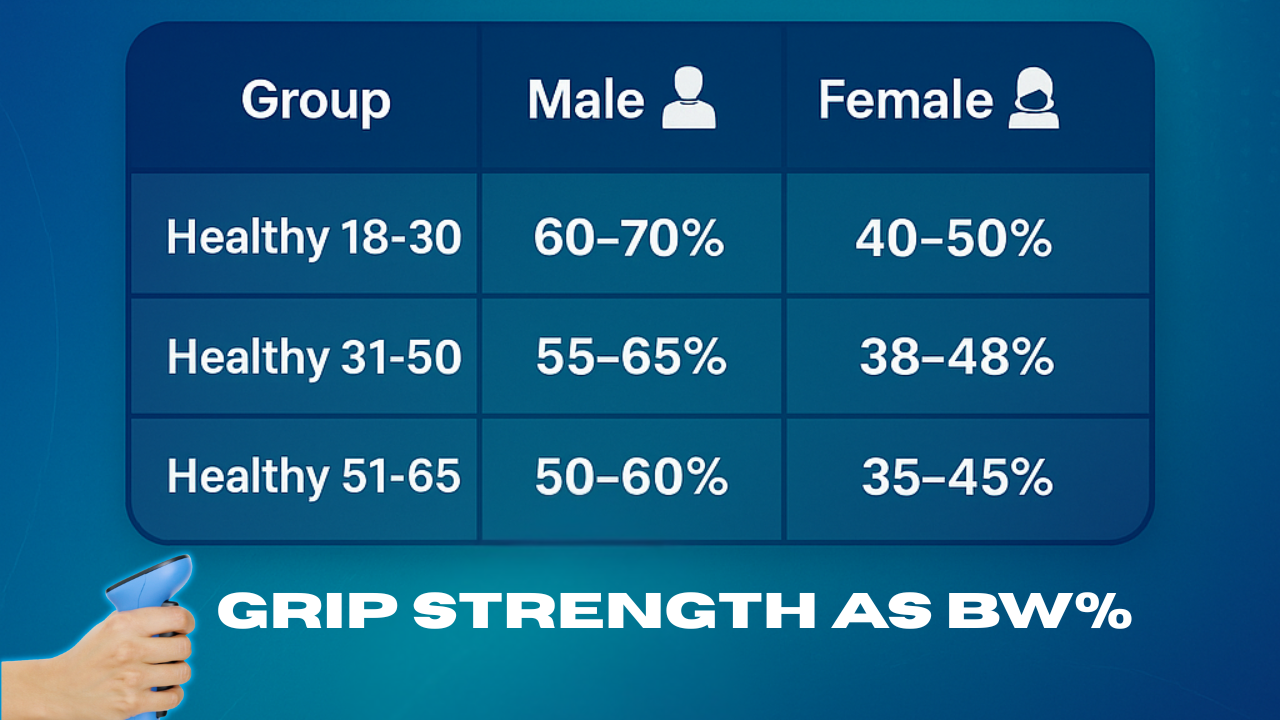Grip strength is often thought of as a simple measure of hand or forearm strength. In reality, it is one of the most robust and widely studied indicators of overall health, functional capacity, and long-term outcomes across the lifespan.
Rather than relying on absolute grip strength alone, recent r...
Strength alone doesn’t tell the full story.
Two individuals can produce the same peak force — yet perform very differently when speed, explosiveness, or rapid load acceptance is required.
That’s where Rate of Force Development (RFD) becomes critical.
Testing Mode in Measurz allows health and fitn...
Strength assessment plays a critical role in health and performance decision-making — yet too often it relies on observation, feel, or vague descriptors like “strong” or “weak”.
The problem?
Subjective assessments are difficult to repeat, hard to defend, and almost impossible to track accurately ove...
Ready to take your strength testing next-level?
In this video, we show you exactly how to pair your Muscle Meter with the Measurz App so your data flows faster than your clients’ excuses.
🎥 In this quick walkthrough, you'll learn:
-
How to connect your Muscle Meter to the Measurz App via Bluetoo
...
How to Use the Muscle Meter: Quick Start Guide 🎯
Whether you're testing strength for rehab, performance, or just flexing your data nerd muscles, the Muscle Meter makes objective measurement simple and fast.
🎥 Watch the video above where we walk you through:
-
How to turn the Muscle Meter on/off
...
How to Conduct the Standing Calf Raise Test to Measure Lower Extremity Strength
Assessing a client’s lower extremity strength is essential for evaluating mobility and overall functional health. One reliable tool for this assessment is the Standing Calf Raise Isometric Test, which measures force pro...
Belt Squat Test: A Practical Guide for Assessing Quadricep Strength
The Belt Squat Test is a versatile and accessible assessment tool for measuring quadricep strength, especially useful for clients who may struggle with loading a barbell in a front or back rack position. Whether your client is reco...
Single Leg Belt Squat Test: A Practical Guide for Assessing Unilateral Lower Limb Strength
The Single Leg Squat Test is a highly effective and accessible tool for measuring unilateral lower limb strength, particularly useful in identifying asymmetries between legs. This test offers a low-impact way...
A Step-by-Step Guide for Physical Therapists on Conducting the Isometric Mid-Thigh Pull (IMTP) Test
The Isometric Mid-Thigh Pull (IMTP) test has become a valuable assessment tool in physical therapy and sports performance for measuring an individual’s maximal isometric force. It’s commonly used to ...
Maximizing the Isometric Front Squat Assessment with MAT Products
Isometric strength assessments, like the isometric front squat, provide valuable insights into the force output of lower limb muscles, making them a staple in assessing muscular health, athletic performance, and rehabilitation progre...
How to Conduct the Standing Calf Raise Test to Measure Lower Extremity Strength
Assessing a client’s lower extremity strength is essential for evaluating mobility and overall functional health. One reliable tool for this assessment is the Standing Calf Raise Test, which measures force production in...
The isometric push-up test is an effective way to assess upper body strength in a static position.
When conducted with Muscle Meter and Tester platform the test allows you to measure peak force exerted during an isometric hold, providing objective data to guide training and monitor progress over t...




